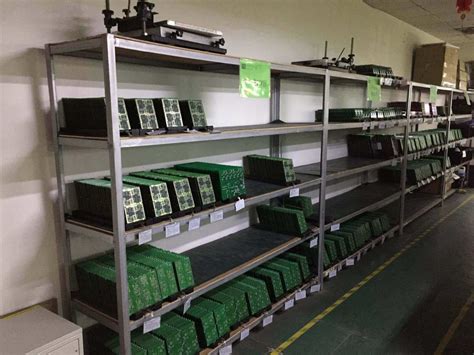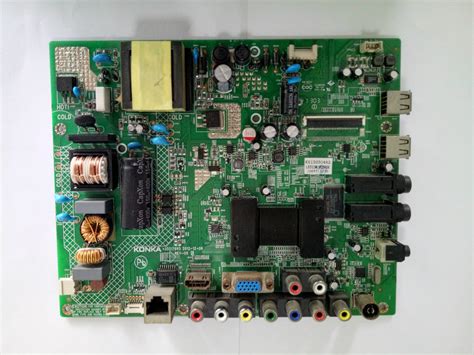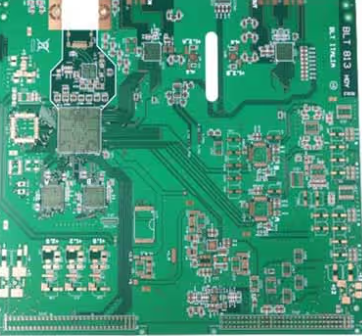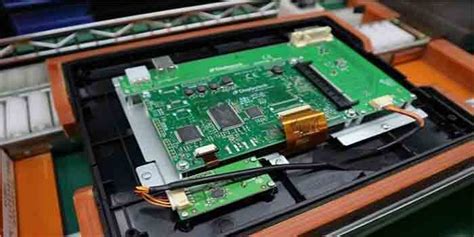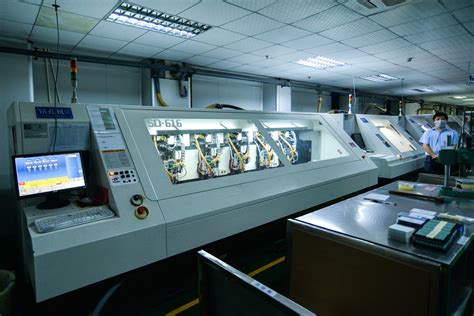Precision PCB Assembly Factory Services: Quality & Speed
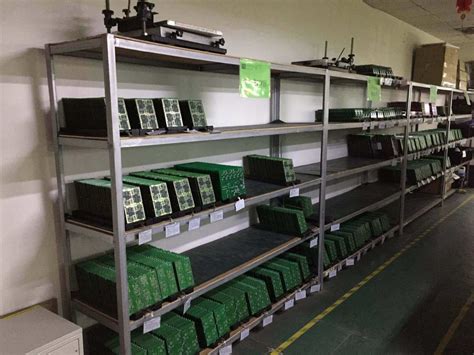
Key Takeaways
When evaluating PCB assembly solutions, three critical factors emerge: precision, speed, and industry-specific compliance. Modern PCBA factories leverage advanced technologies like automated optical inspection (AOI) and X-ray testing to achieve tolerances as tight as ±0.002" for aerospace and medical applications.
| Industry | Critical Requirement | Typical PCB Assembly Focus |
|---|---|---|
| Aerospace | MIL-STD-883 compliance | High-reliability solder joints |
| Medical Devices | ISO 13485 certification | Biocompatible material integration |
| Industrial IoT | 24-hour rapid turnaround | Mixed-technology SMT/through-hole hybrids |
"A robust PCBA strategy balances traceability with scalability. For mission-critical sectors, real-time component tracking isn’t optional – it’s insurance against supply chain disruptions." – Senior Manufacturing Engineer, Tier 1 EMS Provider
For prototyping phases, high-mix, low-volume (HMLV) production models enable functional testing within 72 hours, while bulk orders benefit from parallelized assembly lines achieving 98% on-time delivery rates. Key considerations include:
- DFM (Design for Manufacturing) integration during layout reviews
- Thermal management protocols for high-density boards
- Cross-industry material compatibility checks
Pro Tip: Always verify a PCB assembly factory’s IPC-A-610 Class 3 certification for aerospace/medical projects, and request failure mode data from their last 10 batches. For cost-sensitive consumer electronics, prioritize factories with JIT (Just-in-Time) inventory systems to minimize component obsolescence risks.
Transitioning between prototype and mass production requires factories with adaptive process controls – look for partners offering seamless scaling from 100 to 100,000+ units without requalification delays. This agility directly impacts market entry speed, particularly when dealing with RoHS/REACH-regulated components in global deployments.
Critical Question Checklist
- Does the PCBA partner provide lifecycle management reports?
- How are moisture-sensitive components handled during assembly?
- What’s the escalation path for IPC-6012 non-conformities?
The convergence of automated precision and configurable workflows in modern PCB assembly services creates a competitive edge – particularly when serving industries where a single faulty connection can equate to six-figure recall costs.
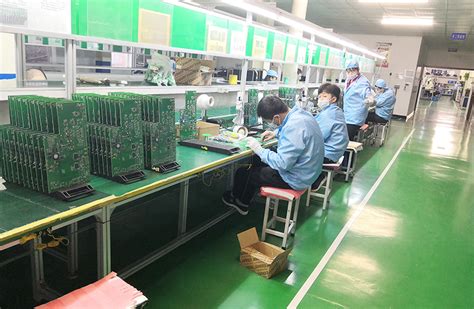
Precision PCB Assembly Factory Solutions
Modern PCB assembly processes demand meticulous attention to detail, particularly in industries where component accuracy directly impacts product performance. A specialized PCBA (Printed Circuit Board Assembly) factory integrates automated optical inspection (AOI) systems, precision pick-and-place machines, and advanced soldering technologies to achieve micron-level tolerances. These capabilities are critical for applications in aerospace, medical devices, and industrial automation, where even minor deviations can compromise functionality.
To ensure consistent quality, leading factories employ traceability protocols that track components from procurement to final testing. This includes rigorous material verification, particularly for high-reliability sectors requiring MIL-spec or ISO-13485 compliance. For instance, medical-grade PCB assembly often involves hermetic sealing and biocompatible coatings, while aerospace applications prioritize thermal cycling resilience and vibration resistance.
Speed-to-market remains a competitive differentiator, with optimized PCBA workflows reducing lead times by 30–40% through parallel processing and lean manufacturing principles. Real-time production monitoring systems further minimize errors, enabling rapid adjustments during high-volume runs. Factories leveraging design for manufacturability (DFM) analysis during prototyping phases can preemptively address potential assembly challenges, reducing rework rates and accelerating project timelines.
Supply chain agility also plays a pivotal role. Trusted PCB assembly partners maintain strategic relationships with component suppliers, ensuring access to critical parts even during global shortages. This is complemented by dual-source procurement strategies and in-house inventory management for mission-critical projects. By balancing precision engineering with scalable production models, these factories deliver end-to-end solutions that align with both performance benchmarks and cost-efficiency goals across diverse industries.
High-Speed PCB Manufacturing for Electronics
In the fast-paced electronics industry, PCB assembly processes must balance precision with accelerated production timelines. Modern high-speed manufacturing leverages advanced PCBA technologies, such as Surface Mount Technology (SMT) and automated optical inspection (AOI), to meet the demands of complex electronic devices. These systems enable factories to place components at speeds exceeding 50,000 placements per hour while maintaining micron-level accuracy—a critical requirement for high-frequency applications like 5G modules and IoT devices.
To ensure reliability, PCB assembly service providers integrate real-time quality monitoring tools, including X-ray inspection and automated test equipment (ATE). These systems detect defects such as solder bridging or misaligned components early in the production cycle, reducing rework delays. For example, automotive electronics manufacturers rely on these protocols to achieve near-zero defect rates, essential for safety-critical systems like ADAS (Advanced Driver Assistance Systems).
The shift toward miniaturization in consumer electronics further underscores the need for high-speed PCB manufacturing. High-density interconnect (HDI) designs, featuring microvias and ultra-fine traces, require specialized equipment capable of handling substrates as thin as 0.2mm. Leading PCBA factories address this by deploying laser direct imaging (LDI) and vacuum reflow ovens, which preserve structural integrity during rapid thermal cycles.
By aligning PCB assembly workflows with lean manufacturing principles, service providers reduce lead times by up to 40% without compromising IPC-A-610 compliance. This efficiency is particularly valuable for prototyping and mid-volume runs, where time-to-market often dictates competitive advantage. Transitioning seamlessly into large-scale production, these optimized processes support industries ranging from telecommunications to wearable technology, ensuring scalability for evolving product lifecycles.
Medical Device PCB Assembly Quality Standards
The stringent quality requirements for PCB assembly in medical devices stem from the critical nature of these applications, where reliability directly impacts patient safety. Medical-grade PCBA must adhere to internationally recognized standards such as ISO 13485 (quality management for medical devices) and IEC 60601 (electrical safety for medical equipment). These frameworks mandate rigorous process controls, including traceability of components, biocompatibility testing for materials, and cleanroom protocols to prevent contamination during PCB assembly.
A hallmark of medical device PCBA is the emphasis on zero-defect manufacturing. Unlike consumer electronics, even minor flaws—such as solder joint inconsistencies or component misalignment—can lead to catastrophic failures. Leading PCB assembly service factories implement automated optical inspection (AOI) and X-ray testing to detect microscopic imperfections, ensuring compliance with FDA and CE regulations. Additionally, thermal management and signal integrity are prioritized to maintain performance in life-critical systems like implantable devices or diagnostic imaging equipment.
Transitioning from aerospace or industrial applications, medical PCB assembly introduces unique challenges, such as long-term reliability validation. Boards must withstand sterilization cycles, moisture exposure, and mechanical stress over decades of use. This necessitates specialized conformal coating techniques and accelerated life testing to simulate real-world conditions. Collaborating with PCBA providers certified in ISO 14971 (risk management) ensures proactive identification of potential failure modes, aligning with the preventive quality ethos of the medical sector.
Finally, documentation rigor sets medical PCB assembly apart. Full material declarations (FMD), lot traceability, and electrical test records are non-negotiable for regulatory audits. Manufacturers investing in digital twin technologies and blockchain-based tracking systems gain an edge in transparency, streamlining compliance for clients in highly regulated markets. By integrating these protocols, PCB assembly factories bridge the gap between precision manufacturing and the uncompromising safety demands of healthcare innovation.
Aerospace-Grade Circuit Board Assembly Services
The aerospace industry demands PCB assembly solutions that meet exceptionally rigorous standards for reliability, durability, and performance. PCBA providers specializing in aerospace applications must adhere to stringent certifications, including AS9100 and IPC Class 3, to ensure boards withstand extreme environmental stressors such as thermal cycling, high-altitude pressure fluctuations, and prolonged vibration exposure. Advanced materials like polyimide substrates and high-temperature solder masks are critical for maintaining signal integrity in avionics, satellite systems, and flight control modules.
To achieve mission-critical precision, aerospace-grade PCB assembly employs automated optical inspection (AOI) and X-ray testing to detect micro-defects, while conformal coating processes enhance resistance to moisture and corrosive agents. Factories serving this sector often integrate PCBA workflows with MIL-STD-883 compliance protocols, ensuring traceability for every component—a non-negotiable requirement for safety-certified aerospace electronics.
Supply chain robustness is equally vital, as aerospace projects typically involve extended product lifecycles. Leading manufacturers mitigate obsolescence risks by partnering with certified component distributors and maintaining inventory buffers for long-lead parts. This approach not only aligns with the industry’s zero-failure tolerance but also supports rapid design iterations for next-generation propulsion systems and communication arrays.
By balancing ultra-strict quality controls with agile production methodologies, specialized PCB assembly factories enable aerospace innovators to meet both FAA/EASA compliance mandates and compressed development timelines—a dual imperative in an era of advancing space exploration and electric aircraft technologies.
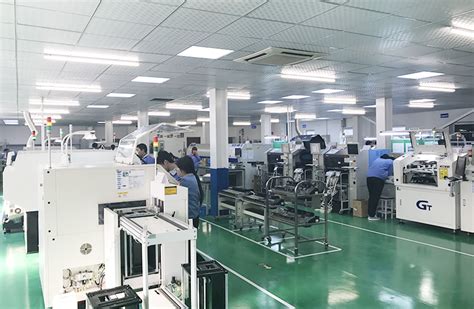
Rapid Turnaround PCB Prototyping Solutions
In fast-paced industries where innovation cycles are measured in weeks rather than months, PCB assembly providers must balance precision with agility. Rapid prototyping has become a cornerstone of modern electronics development, enabling engineers to test designs, identify flaws, and iterate efficiently. Advanced PCBA factories leverage automated workflows, such as laser-direct imaging and high-speed pick-and-place systems, to reduce lead times from weeks to days without compromising on quality.
Critical to this process is the integration of surface-mount technology (SMT) with real-time quality monitoring. By combining automated optical inspection (AOI) and X-ray verification, manufacturers ensure that even the most complex multilayer boards meet stringent tolerances during accelerated production. This approach is particularly vital for industries like medical devices and automotive electronics, where prototype validation often dictates project timelines.
To achieve 24- to 72-hour turnaround, leading PCB assembly factories employ just-in-time material sourcing and dedicated prototyping lines. These lines operate independently of high-volume production, minimizing queue delays while maintaining traceability via barcode-driven tracking systems. Additionally, DFM (design for manufacturability) feedback loops are embedded early in the process, allowing engineers to adjust layouts for optimal PCBA performance before full-scale production begins.
The strategic use of modular tooling and flexible solder paste application methods further enhances speed. For instance, dual-lane conveyors in reflow ovens enable simultaneous processing of multiple prototype batches, while adaptive stencil designs accommodate mixed-component configurations. Such innovations ensure that rapid prototyping isn’t just fast—it’s a repeatable, scalable foundation for transitioning designs into mass production.
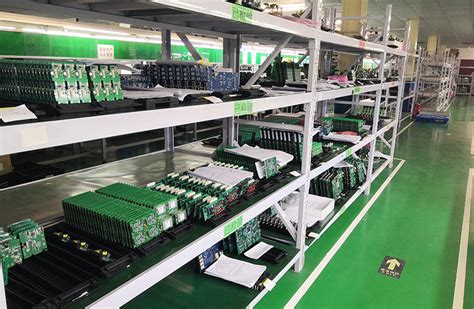
Expert SMT Assembly for Industrial Applications
Modern industrial systems demand PCB assembly solutions that balance precision, durability, and scalability. Expert SMT (Surface Mount Technology) processes have become indispensable for applications ranging from automotive control modules to heavy machinery automation. Unlike conventional through-hole methods, high-speed SMT placement enables the accurate mounting of miniature components, such as 0402 resistors or QFN packages, onto PCBA substrates with tolerances as tight as ±0.025mm. This level of precision is critical for industrial environments where vibration, temperature fluctuations, and prolonged operational cycles are common.
Advanced PCB assembly factories leverage automated optical inspection (AOI) systems and X-ray testing to validate solder joint integrity, particularly for high-density interconnect (HDI) boards used in robotics or IoT-enabled industrial equipment. These quality checks ensure compliance with IPC-A-610 and ISO 9001 standards, which govern everything from component alignment to thermal stress resistance. For industries like oil and gas or renewable energy, where equipment operates in extreme conditions, PCBA reliability directly impacts system uptime and safety.
Scalability is another key advantage of specialized SMT assembly services. Factories equipped with modular production lines can seamlessly transition between low-volume prototyping and high-volume runs, accommodating urgent orders for industrial sensor networks or production line controllers. The integration of nitrogen-reflow soldering further enhances joint durability, minimizing voiding rates for mission-critical assemblies.
By partnering with a PCB assembly factory that specializes in industrial applications, manufacturers gain access to tailored solutions—from conformal coating for corrosion resistance to custom thermal management designs. This collaboration ensures that PCBA outputs not only meet technical specifications but also align with industry-specific regulatory frameworks, such as UL certification for electrical safety or ATEX directives for hazardous environments.
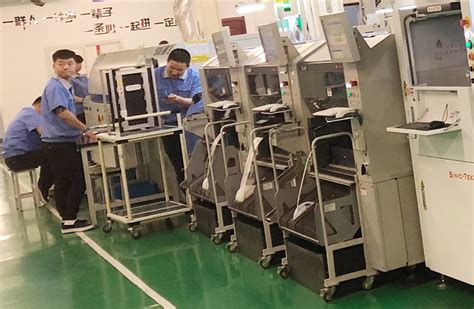
Reliable PCB Production for Global Industries
Modern industries demand PCB assembly solutions that combine technical rigor with operational flexibility to serve diverse international markets. Advanced PCBA providers achieve this by integrating ISO-certified processes with region-specific compliance frameworks, ensuring seamless integration into supply chains across aerospace, automotive, and telecommunications sectors. For example, high-reliability PCB production for automotive applications requires adherence to IATF 16949 standards, while medical device manufacturing mandates traceability protocols under ISO 13485.
The foundation of reliable PCB assembly lies in precision engineering and agile manufacturing workflows. Leading factories employ automated optical inspection (AOI) systems to maintain sub-0.1% defect rates, even when handling complex high-density interconnect (HDI) designs. By combining surface-mount technology (SMT) with through-hole assembly capabilities, these facilities support mixed-technology boards critical for industrial control systems and military-grade hardware.
Global scalability is further enhanced through just-in-time (JIT) inventory models and multi-region testing certifications. A PCB assembly service catering to European markets, for instance, must align with RoHS and REACH directives, whereas Asian-Pacific clients often prioritize rapid prototyping alongside mass production. This adaptability ensures end-to-end supply chain resilience, from prototype validation to full-scale turnkey PCBA delivery.
Moreover, data-driven quality assurance frameworks enable PCB factories to monitor production metrics in real time, addressing thermal management or signal integrity issues before boards enter final validation. Such proactive measures are particularly vital for mission-critical industries like aerospace, where rigid-flex PCB assemblies undergo extended environmental stress screening (ESS) to guarantee performance under extreme conditions.
By balancing cost-efficiency with zero-compromise quality benchmarks, global PCB assembly partners empower manufacturers to meet evolving technical demands while maintaining compliance across jurisdictional boundaries.
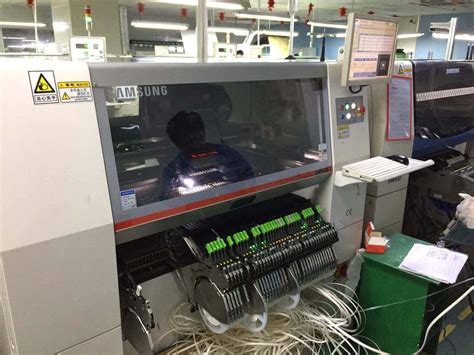
Cost-Effective PCB Assembly Service Benefits
Modern PCB assembly solutions are redefining value in electronics manufacturing by balancing affordability with uncompromised performance. Cost-effective PCBA services leverage advanced automation, optimized supply chains, and scalable production models to reduce expenses without sacrificing the precision required for mission-critical applications. By partnering with a specialized PCB assembly factory, businesses gain access to bulk material pricing, minimized waste through lean manufacturing practices, and reduced overhead costs associated with in-house production.
A key advantage lies in high-volume PCB assembly, where economies of scale drive down per-unit costs while maintaining stringent quality controls. Factories equipped with AI-driven inspection systems and surface-mount technology (SMT) ensure consistent output, reducing costly rework or delays. For prototyping phases, rapid-turnkey solutions allow iterative testing at lower upfront investments, accelerating time-to-market for consumer electronics and industrial systems alike.
The financial benefits extend beyond unit pricing. Advanced PCB assembly providers implement design-for-manufacturability (DFM) reviews to preempt production challenges, avoiding post-production modifications that inflate budgets. Additionally, streamlined logistics networks and regional fulfillment centers cut lead times and shipping costs—critical for industries like automotive and telecommunications where project timelines are tightly synchronized.
By integrating cost-effective PCBA strategies, manufacturers achieve dual objectives: maintaining compliance with aerospace-grade certifications or medical device ISO standards while delivering competitively priced solutions. This strategic balance enables startups and enterprises alike to allocate resources toward innovation rather than operational overhead, fostering long-term growth in rapidly evolving tech sectors.
Conclusion
In the evolving landscape of modern manufacturing, PCB assembly services have become the backbone of innovation across industries requiring mission-critical precision. A dedicated PCBA factory bridges the gap between design and deployment, ensuring that high-performance boards meet stringent quality benchmarks while adhering to accelerated production schedules. Whether catering to aerospace-grade reliability, medical device compliance, or the fast-paced demands of consumer electronics, these facilities leverage advanced technologies like automated optical inspection (AOI) and surface-mount technology (SMT) to deliver consistent results.
The success of PCB assembly hinges on a factory’s ability to harmonize speed with accuracy. Rapid prototyping capabilities, paired with robust supply chain management, enable manufacturers to reduce lead times without compromising on the integrity of multilayer boards or complex circuitry. For industries where downtime translates to significant financial or operational risk, such as industrial automation or defense systems, this balance is non-negotiable.
Moreover, the shift toward smart manufacturing has reinforced the importance of traceability and process control in PCBA workflows. Factories investing in IoT-enabled equipment and real-time monitoring systems are better positioned to address defects at early stages, minimizing rework and ensuring compliance with international standards like IPC-A-610 and ISO 13485.
As global industries continue to prioritize miniaturization and energy efficiency, the role of specialized PCB assembly partners will only grow more pivotal. By integrating cutting-edge engineering with scalable production models, these factories not only meet today’s demands but also lay the groundwork for tomorrow’s technological breakthroughs. The future of electronics manufacturing belongs to those who can deliver zero-defect outcomes at the speed of innovation.
Frequently Asked Questions
What distinguishes a reliable PCB assembly factory from standard providers?
A qualified PCBA partner maintains ISO-certified processes, utilizes military-grade inspection systems, and implements traceability protocols across all production stages. Look for factories with aerospace-approved soldering techniques and medical-grade cleanliness standards.
How do PCB assembly services ensure component compatibility?
Advanced PCBA providers employ design for manufacturability (DFM) analysis tools to verify BOM accuracy, component spacing, and thermal requirements. Many factories stock 15M+ part numbers from tier-1 distributors to prevent obsolescence issues.
What turnaround times are achievable for complex PCB assemblies ?
Leading factories offer 24-hour rapid prototyping for boards under 12 layers, with full-scale production in 5-7 days. Expedited options using automated SMT assembly lines can compress timelines by 40% versus manual processes.
Are PCB assembly costs higher for medical or aerospace applications?
While compliance with ISO 13485 (medical) or AS9100D (aerospace) adds 15-20% to baseline pricing, strategic PCBA partners offset this through value engineering and panelization efficiency.
How is quality maintained during high-volume PCB assembly runs?
Automated optical inspection (AOI) systems perform 23 critical checks per board, complemented by X-ray verification of BGA components. Statistical process control (SPC) monitors 18 production parameters in real time.
Ready to Optimize Your Electronics Manufacturing?
Please click here to discuss your project’s PCB assembly requirements with our certified engineering team:
https://www.andwinpcb.com/pcb-assembly/

